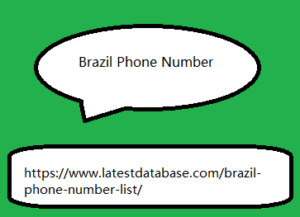Post by afifatabassum on Mar 12, 2024 3:46:04 GMT
As you know, I have been following the evolution of the Facebook phenomenon for over a year, driven by the unprecedented possibility of using an official data analysis tool to understand how large international social networks are formed. With the new year I have decided to inaugurate " Facebook Observatory ", a page where you can more easily find all the updated data on the Italian situation. Naturally, each graph can be shared freely on your blogs or social networks, to enrich analysis and discussions. The latest data collected on 31 December show, at a global level, that the number of users has exceeded 140 million, with the European Union exceeding 40 million and Italy approaching 6 million.
The age groups that are growing the most are young Brazil Phone Number people, up to 18 years old, who previously only knew MySpace, Badoo or Netlog (in one month they grew by 73%), and that of adults (in one month those over 46 years old grew by 51%). I don't think we are yet at the plateau phase, which will probably be around 10 million users. Facebook still has large margins for growth, because it has some levers that it still needs to maneuver as best as possible: in particular FB Connect to create valuable partnerships (implemented as a test on this blog thanks to a plugin ) and the integration of an engine of search to offer users a further reason not to leave the "garden" (Live Search is already active in the US). Clearly it will have to avoid making privacy missteps and better calibrate the exposure of advertising (which could become too visually invasive).

Ireviewed the shots taken during 2008 and realized that I had taken very few truly valuable ones. I have the feeling that I haven't yet been able to fully exploit my Canon 5D and its lenses. So, as an element of self-motivation, I have grouped together the photos most liked by visitors to my space on Flickr:The year that is fading away can also be tagged , sorry labeled, " Facebook ", the social network that has surprised many and that makes us reflect for the many social and technological implications it brings with it. I agree with Vittorio who, while highlighting some roughnesses in the design that affect the user experience, places emphasis on the informative, "clearance" function of some of the geekiest practices of web 2.0. In my opinion, two above all: the status update, the "what are you doing" of Twitter which has not convinced the masses, within Facebook finds a context, a meaning, for the common user of the network; the same goes for the "news feed", the river of news from our friends, the lifestreaming of our dear little FriendFeed .
The age groups that are growing the most are young Brazil Phone Number people, up to 18 years old, who previously only knew MySpace, Badoo or Netlog (in one month they grew by 73%), and that of adults (in one month those over 46 years old grew by 51%). I don't think we are yet at the plateau phase, which will probably be around 10 million users. Facebook still has large margins for growth, because it has some levers that it still needs to maneuver as best as possible: in particular FB Connect to create valuable partnerships (implemented as a test on this blog thanks to a plugin ) and the integration of an engine of search to offer users a further reason not to leave the "garden" (Live Search is already active in the US). Clearly it will have to avoid making privacy missteps and better calibrate the exposure of advertising (which could become too visually invasive).

Ireviewed the shots taken during 2008 and realized that I had taken very few truly valuable ones. I have the feeling that I haven't yet been able to fully exploit my Canon 5D and its lenses. So, as an element of self-motivation, I have grouped together the photos most liked by visitors to my space on Flickr:The year that is fading away can also be tagged , sorry labeled, " Facebook ", the social network that has surprised many and that makes us reflect for the many social and technological implications it brings with it. I agree with Vittorio who, while highlighting some roughnesses in the design that affect the user experience, places emphasis on the informative, "clearance" function of some of the geekiest practices of web 2.0. In my opinion, two above all: the status update, the "what are you doing" of Twitter which has not convinced the masses, within Facebook finds a context, a meaning, for the common user of the network; the same goes for the "news feed", the river of news from our friends, the lifestreaming of our dear little FriendFeed .

